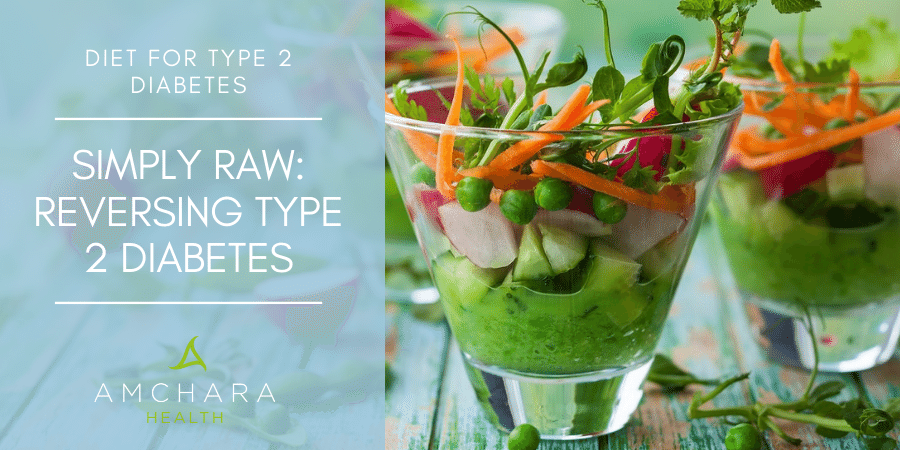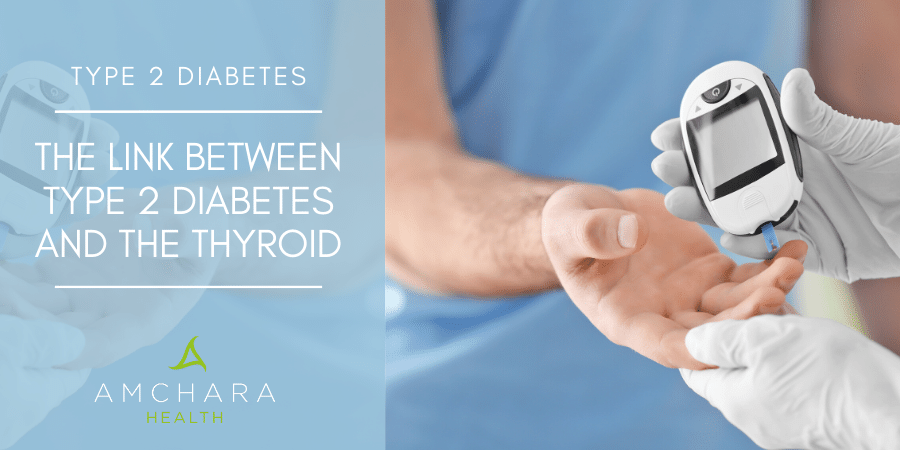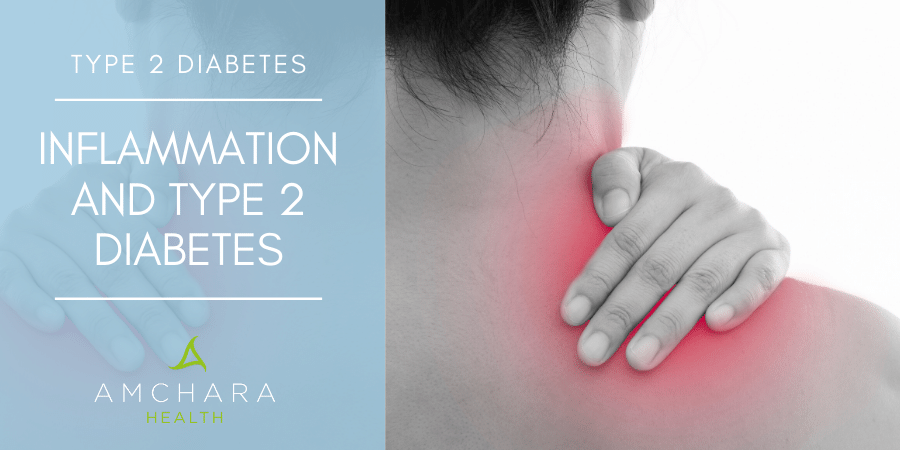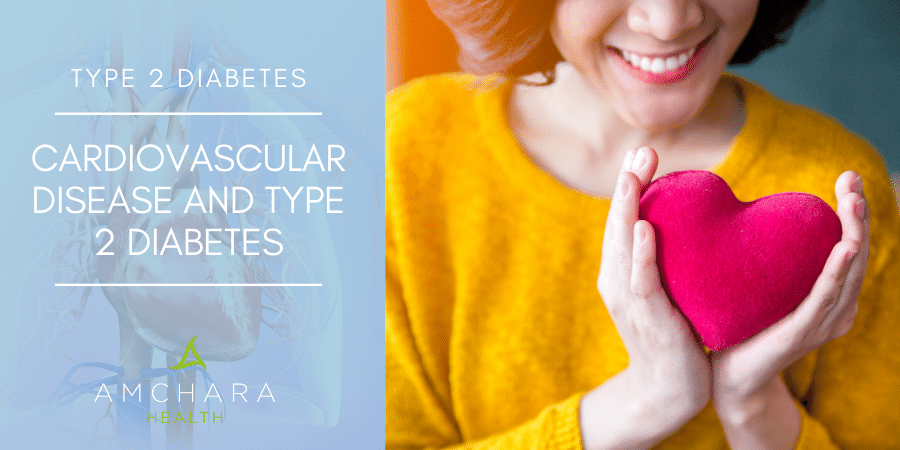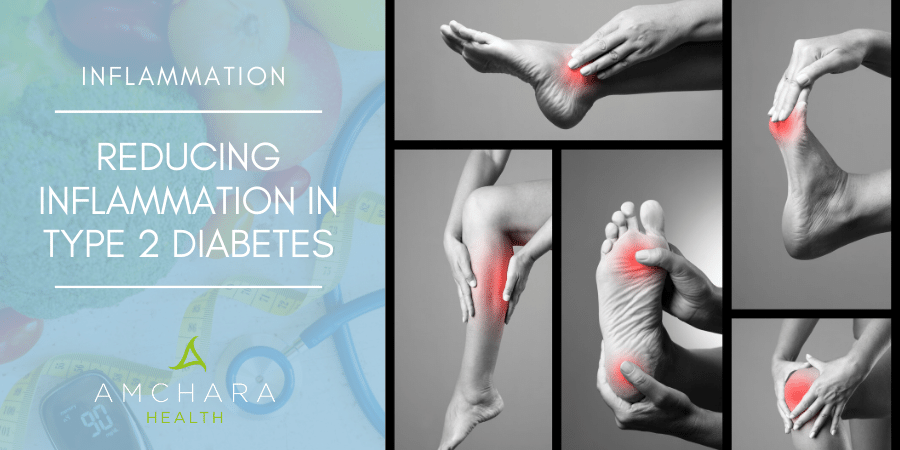In the article below, we discuss how a raw food diet can help you manage diabetes.
Most people know that consuming a diet that has processed or overcooked foods or foods that are high in sugar and fat is part of the cause of Type 2 diabetes.
Eating a raw food diet will help decrease the amount of sugar and fat you put in your system and aid you to lose weight, prevent, treat and reverse type 2 diabetes.
The good news is that a raw food diet can reverse your Type 2 diabetes faster and more effectively than most other diets.
Because this is a big article about Type 2 Diabetes, we have included a Table of Contents below.
There are also jump links at the end of each section of the post that will bring you back up to the top.
Table of Contents:
1. Rreverse diabetes with raw food?
2. Symptoms of Type 2 diabetes
3. What are the complications?
4. What causes Type 2 diabetes?
5. Fat and Type 2 diabetes
6. Diabetes can progress over time
7. Is Type 2 diabetes always reversible?
8. How long does it take to reverse diabetes?
9.Type 2 diabetes carb diet
10. Reverse Type 2 diabetes diet plan
Reverse Type 2 Diabetes with Raw Food
Is it possible to reverse Type 2 diabetes naturally just by changing your diet to raw food?
According to many studies, it is entirely possible.
A really interesting watch is the Raw for 30 documentary in which 6 people with a combination of Type 1 and Type 2 diabetes each joined a program to go raw for 30 days.
During the 30-day period, each stuck to a strictly raw vegan diet and ate only raw vegetables, pulses, nuts and seeds for 30 days – the results were astonishing.
VIDEO: Simply Raw Reversing Diabetes in 30 Days [01:30:00]
Some members of the group were able to completely come off all diabetes medications and were able to put their diabetes into remission.
Others saw a huge reduction in the amount of insulin and other diabetes medications that they were taking with two members reducing their insulin intake to one-sixth of what they were taking when they joined the program.
The body has an extraordinary capacity to self-heal when given the right fuel and a large quantity of plant-based foods.
In Arizona Naturopath Dr Kirt Tyson ate a raw food diet in an attempt to lower his blood sugar levels and cure his Type 1 diabetes.
Within just 3 weeks of eating a raw food diet, Dr. Tyson was able to completely come off insulin and today he only ever requires insulin on rare occasions for a short period of time.
These examples provide anecdotal evidence that Type 2 diabetes can be reversed.
At Amchara Health we have devised a program to help people reverse the progression of Type 2 diabetes by using raw foods and removing certain types of unhealthy and addictive foods.
Type 2 diabetes is a modern-world disease predominantly due to poor nutrition and partly due to sedentary lifestyles.
Those who are overweight have a much higher risk of developing Type 2 diabetes, especially those over the age of 35.
By being mindful of your nutrition, including plant-based foods and eating healthily it appears that you can reverse Type 2 diabetes, or at least put it into remission.
In many cases, some people, have been able to completely remove the need to take insulin or other diabetes medications.
It is important to note that one should always consult with a doctor before making changes to any diabetes medication.
Similarly, if you are interested in changing your diet to improve your diabetic condition it is advisable to have skilled, appropriate nutritional advice or medical support.
At Amchara we support clients and patients who are interested in resolving their diabetes by changing their relationship with food and their lifestyle.
We provide a safe, secure, supervised, nurturing environment for you to change your health for good.
Many clients have visited us who wished to change their relationship with diabetes, reduce their blood sugar levels and try to wean off their medications.
Having predominantly plant-based foods is at the heart of our approach.
The “Raw for 30” documentary, showed some amazing results of people who had changed to a raw food diet and either completely reversed their diabetes or experienced a dramatic improvement in their health and a reduction in medications.
In order to reverse diabetes or to improve the condition, a positive step on this journey is to eat raw, plant-based foods including vegetables, seeds, nuts, and pulses.
Some fruits are allowed but due to the high natural sugar content, not much fruit is advised.
Combining this nutritional approach with meditation to focus the mind and yoga to improve fitness and flexibility, we have found the results are astounding.
top ↑
If you’re still not totally convinced watch this compelling video:
Symptoms of Type 2 Diabetes:
The symptoms of Type 2 diabetes due to high blood sugar may include:
- Feeling very thirsty
- Excessive appetite
- Urge to urinate frequently especially at night
- Unexplained weight loss
- Loss of muscle bulk
- Fatigue
- Cuts and wounds that heal slowly
- Blurred vision
- Sugar cravings
- Itching of the genital organs
- Frequent infections, including gum or skin infections, and vaginal or bladder infections
Type 2 Diabetes Complications
What are the long-term complications of diabetes?
When your body can’t produce enough insulin as in Type 1 diabetes or your cells become resistant to insulin (Type 2 diabetes) you run the risk of developing excessively high levels of sugar in your blood.
High levels of blood sugar are termed ‘hyperglycaemia’ and can lead to really serious health issues such as:
- Kidney failure
- Blindness
- Gangrene
- Heart disease
Having consistently raised blood sugar levels affects the small blood vessels in the kidneys, eyes, and nerves as well as the larger blood vessels in the legs, heart and brain.
Diabetes also attacks your antioxidant defences because hyperglycaemia imposes considerable oxidative stress on the body.
Causes of Type Two Diabetes
Type 2 diabetes has several causes: Genetics and Lifestyle are the main ones.
Evidence would suggest that a diet high in refined carbohydrates and low in fibre is associated with a higher risk of diabetes.
Key factors that lead to this condition include:
When you eat carbohydrates, it increases your blood sugar (glucose) levels.
Wholegrains – often called complex carbohydrates or low GI foods only cause a small increase in blood sugar levels whereas refined carbohydrates – or high GI foods create surges in blood sugar, fats and insulin. These are all factors that are known to substantially increase your risk for diabetes.
If your body has to produce high levels of insulin too frequently over prolonged periods then there is a danger that your cells will become resistant to insulin which is vital for chasing sugar into your cells. Excess sugar circulating in the blood is stored as fat particularly around the middle.
The lion’s share of your blood glucose is taken up by the skeletal muscles- but because people these days are more sedentary they have less muscle bulk compared to our ancestors.
The remaining muscle is also less effective which means there is less available storage space to clear sugar out of the blood.
The body also uses a brown adipose tissue to store glucose but this is also similarly compromised.
When insulin targets the insulin receptors on your muscle cells they activate a pump that transports the sugar into the cells.
For the pump to operate efficiently it requires the help of several nutrients which include chromium, manganese, and inositol. Sadly, the modern diet is deficient in these key nutrients.
In addition to this, magnesium deficiency may worsen insulin resistance and impair insulin secretion.
Insulin is also normally protected from oxidation by flavonoids, which are historically at an all-time low.
Oxidative stress has been associated with insulin resistance, Type 2 diabetes, and the progression of long-term diabetic complications.
People eat far too few fruit and vegetables, which are rich sources of flavonoids and the other vital nutrients necessary for insulin and glucose control.
Recent research suggests that type 2 diabetes is caused by a fatty liver and excess fat in the pancreas, which controls insulin secretion.
Professor Roy Taylor believes that if you get rid of fat you can reverse Type 2 diabetes.
He explains that excess fat causes the liver to respond poorly to insulin.
Because insulin is responsible for controlling normal glucose production, the liver is unable to respond as it should and produces too much glucose.
When there are abnormally high levels of fat in the liver it causes the liver to export excessive levels of fat to all tissues.
As well as this, too much fat in the pancreas affects the insulin-producing cells which fail to function.
According to research by professor Roy Taylor, an extremely low-calorie diet significantly reduces liver fat, which results in the normalisation of insulin sensitivity in the liver.
Within 8 weeks pancreatic fat content and blood sugar control returns to normal.
Fat and Type 2 Diabetes
The dangers of high levels of triglycerides (fats) in the blood
As well as having too much sugar in the blood, diabetics also have abnormally high levels of triglycerides.
It is believed that saturated fats and trans-fats may be a factor in conditions associated with diabetes such as cardiovascular disease.
Fats are normally removed from the blood by an enzyme called LPL, which depends on normal levels of insulin.
This particular enzyme has been shown to be defective in diabetic individuals.
However a diet rich in saturated animal fats can decrease the activity of this important enzyme leading to high levels of triglycerides in the blood which are associated with high cholesterol levels and cardiovascular disease – often linked to diabetes.
Regular exercise, on the other hand, makes the enzyme LPL more active in the muscles, thus lowering triglycerides and reducing the risk of heart disease.
Further research has also shown a correlation between trans-fats in the diet and increased risk for Type 2 diabetes.
Although this is not the whole picture it does indicate why a lack of exercise and a diet full of sugary high-fat junk food predisposes some people to insulin resistance.
How Type 2 Diabetes Can Progress Over Time
The majority of diabetics (which has reached as many as 3.7 million in the UK with another 12.3 at risk), develop the disease later in life, most often in middle age.
This form of diabetes is referred to as Type 2, adult onset or non-insulin-dependent diabetes.
Type 2 Diabetes progresses slowly and may take many years to develop.
The amount of time it takes depends very much on the individual and their risk factors.
There is a recognised condition known as prediabetes – or impaired glucose tolerance that can indicate you need to make changes.
Pre-diabetes means your blood glucose levels are high but may not be high enough to be formally diagnosed as diabetic.
Diet and nutrition are widely believed to play an important part in the development of Type 2 diabetes.
More specifically you’re at greater risk of developing this type of diabetes if you are:
- Obese
- Lead a sedentary lifestyle
- Smoke
- Drink alcohol
- A high intake of both saturated and trans-fats and refined carbohydrates.
- Poor levels of antioxidants also contribute to the risk.
Is Type 2 Diabetes Always Reversible?
A convincing body of Research has confirmed that even as long as 10 years after developing the condition, Type 2 diabetes can be reversible.
This is achieved primarily by losing a significant amount of weight.
Providing the weight loss stays off, normal metabolism can be maintained in the long term.
How Long Does It Take To Reverse Diabetes?
Lowering blood sugar levels to a point where medication is no longer needed can be achieved within 2 to 3 weeks.
But this depends:
- How advanced your diabetes is
- How overweight are you
- How strict you are with your diet
- How much exercise you do
- The type of diet you embark on
- Any other health conditions you may have,
– and whether you are seeking professional help and guidance from a qualified health practitioner.
Overall as with many chronic health conditions – which take a long time to develop, it would be realistic to expect that they may take some time to improve.
However, if you adhere to advise you are given you should start to feel better very quickly which can increase motivation making it less likely you will abandon your new eating regime.
Eliminating Refined Carbohydrates
Is eliminating refined carbohydrates another solution for reversing Type 2 diabetes?
Many experts seem to think so.
According to leading nutritionist Patrick Holford “With the right nutrition, exercise and a low GL load diet it is possible to control, and in some cases, reverse diabetes”.
Although a raw food diet produces spectacular results when trying to reverse diabetes, you can also make significant progress towards reversing diabetes by cutting out refined carbohydrates or reducing them significantly.
Foods to avoid if you are diabetic
Foods you should avoid include simple carbohydrates, which are processed, such as sugar, pasta, white bread, flour, cookies, and pastries.
- Dried Fruit
- Fruit Juice
- White Bread, Pasta, and Rice
- Fruit-Flavoured Yoghurt
- Sweetened Breakfast Cereals
- Flavoured Coffee Drinks
- Packaged Snack Foods
- French Fries
- Sugar-Sweetened Beverages
- Honey, Agave Nectar, and Maple Syrup
Your 5 step reverse Type 2 diabetes diet plan
1. Eat a reduced GI/GL diet
Cut down considerably the amount of potatoes, white flour products and sweet, sugary, highly refined foods and drinks in your diet.
Replace them with wholegrain foods, favouring (gluten-free) oat-based foods, pulses, and legumes.
Beta-glucans in oats are shown to reduce the absorption of sugar and fats from the gut.
Sticking to low GI/GL foods lowers the surges in blood sugar, fats, and insulin, which occur after meals. Switch to regular meals and stop snacking.
2. Include daily exercise
According to diabetes.co.uk high-intensity interval training is particularly beneficial for people with type 2 diabetes as it increases glucose metabolism in the muscles as well as insulin sensitivity in those with type 2 diabetes.
However, if this type of exercise is not for you, 20-30 minutes a day of brisk walking can be equally beneficial to health and weight loss.
Exercise also reduces blood triglyceride levels.
3. Supplement missing nutrients
Chromium deficiency is thought to lead to insulin resistance so supplementing with this key mineral is a good idea.
Studies have also found that it increases levels of HDL (good) cholesterol and reduces levels of triglycerides in the blood.
Many people find chromium helps to reduce their craving for sweet foods too.
Because diabetes attacks your antioxidant defences, it is also well worth boosting your antioxidant intake with a broad-spectrum antioxidant formula.
4. Lose weight
Studies show you are at a much higher risk of developing Type 2 diabetes if you are overweight and losing weight is also the most effective way to reverse Type 2 diabetes.
Significant weight loss helps to reduce insulin resistance allowing individuals with type 2 diabetes to stop taking their medication (only under medical supervision)
5. Reduce saturated and trans fats
Saturated and trans fats create inflammation and contribute to insulin resistance and are linked to diabetes and heart disease.
Healthy fats are the type that can be found in avocado, coconuts, olives, nuts, and seeds.
Fish oil, flaxseed oil, and walnut oil are also rich in omega 3 fatty acids, which have been found to reduce nerve damage in diabetic patients.
Some studies suggest that the medium chain triglycerides (MCTs) found in coconut oil are directly absorbed by the intestines and are transported straight to the liver where they can be used for energy rather than being deposited as fat.
It has also been found the MCTs can improve the actions of insulin and reduce insulin resistance.
Are you living with diabetes or think you may be pre-diabetic?
Did you find this article helpful?
Please let us know your thoughts.
Thinking of coming to Amchara? | Contact us today to enquire
Stay at our UK or Malta retreats for 3 – 30 days, for a personalised experience! Structured plans just for you, with health and advice from our experts. Check dates now. Personalised Nutrition. Lose weight & feel good.
Topics Related to Diabetes on Amchara.com:
- Beneficial Effects of Fasting for Diabetics
- Signs & Symptoms of Type 2 Diabetes
- How To Get Started on a Raw Food Diet
- How to Cut the Risk of Diabetes
- Reverse Diabetes with a Raw Food Diet
- Juice Recipes for Diabetics
- Study: Thyroid Increases Risk of Diabetes
Helpful Resources:
- Healthline.com – Is type 2 diabetes reversible?
- Diabetes.co.uk – Reversing Diabetes
- Dietdoctor.com – Quickstart guide to reversing diabetes
- Theguardian.com – Study: Radical diet can reverse type 2 diabetes
- NHS.uk – Low-calorie diet may reverse type 2 diabetes
